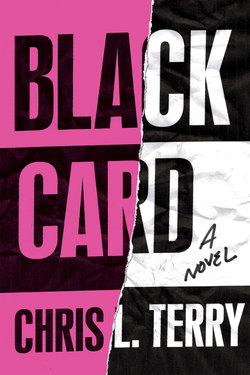Читать книгу Black Card - Chris L Terry - Страница 11
На сайте Литреса книга снята с продажи.
ОглавлениеTWO
Our show was at a dive in a part of Wilmington far from the chain restaurants and traffic that clogged southern cities in the ’90s. The peak-roofed club looked like an old barn and smelled like one, if the animals smoked.
You’d think that the best shows would be in the biggest cities, but if you’re in a lesser-known band like ours, you do better in smaller towns, where people aren’t so jaded. They come out of the woodwork just because something’s going on. That doesn’t happen in places like New York and Los Angeles. People there have more options.
On the short stage, I peeked up from fiddling with my amp and saw a good fifty people already waiting. More were drifting in from the bar and parking lot, called by the twang and drone of our tuning. They seemed like our crowd: the weird kids, from “my first show” fifteen-year-olds in new cutoff army pants, to older guys in the sweet spot between high school and pain pills. Searchers, intent on finding their own fun. We were that fun, dug up online or passed along on a mix CD.
I ran through the slinky riff from Nirvana’s “Come as You Are” to tune the A string to the E and looked to my bandmates for levels. My breath got short as my racial hang-ups and stage fright melded into a sun-hot beam that turned my fingers electric as we passed eye contact in a triangle and nodded, ready to blow off the long drive, the stupid week.
Mason was irritated about the shift-leader job he might as well quit.
Russell was ready to hit the drums so hard he’d get out of his dead-end life.
I wanted to turn a shade blacker every time I hit a bass string, envisioning a funk bassist with star sunglasses and a five-pointed bass; a jazz musician with his head back, the neck of his standup bass by his ear; even a lanky baseball pitcher folding himself into a crane shape on the mound before unleashing a fastball. Anything that read as black and performing.
I’d been playing shows for years. I was twenty-one and among the oldest people in the room. Still, I was hooked on the moment when the amps’ hum faded, Russell sat back on his drum stool, and silence washed back through the crowd, loud and full, like a two-string power chord could burst it.
I held my breath as Mason said, “Hi, we’re Paper Fire from Richmond, Virginia.”
At that moment, everyone was on the same side. We all wanted four clicks of the drumsticks and twenty minutes of release. I wanted to disappear and sense how far my headstock pointed out so I didn’t knock over a cymbal. I wanted to whip sweat from my forehead before it slicked up my bass, make eye contact with the knot of people up front headbanging and shaking their fists, and be amazed when they knew the lyrics Mason had written on a gas station napkin.
All the funk records I played at home, and I learned none of their rhythm by osmosis. In that punk band, my soul flailed and thrashed, and the room felt it more than heard it: a thick rumble that ripples out from the heart, shaking loose all the problems inside me.
